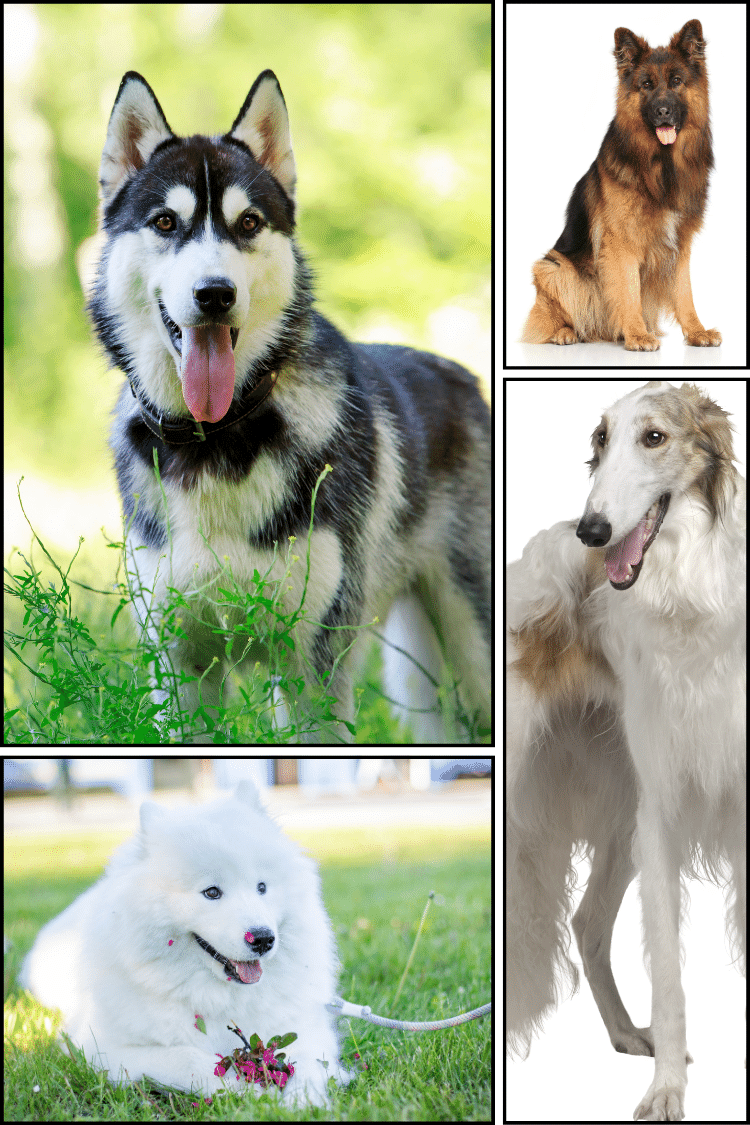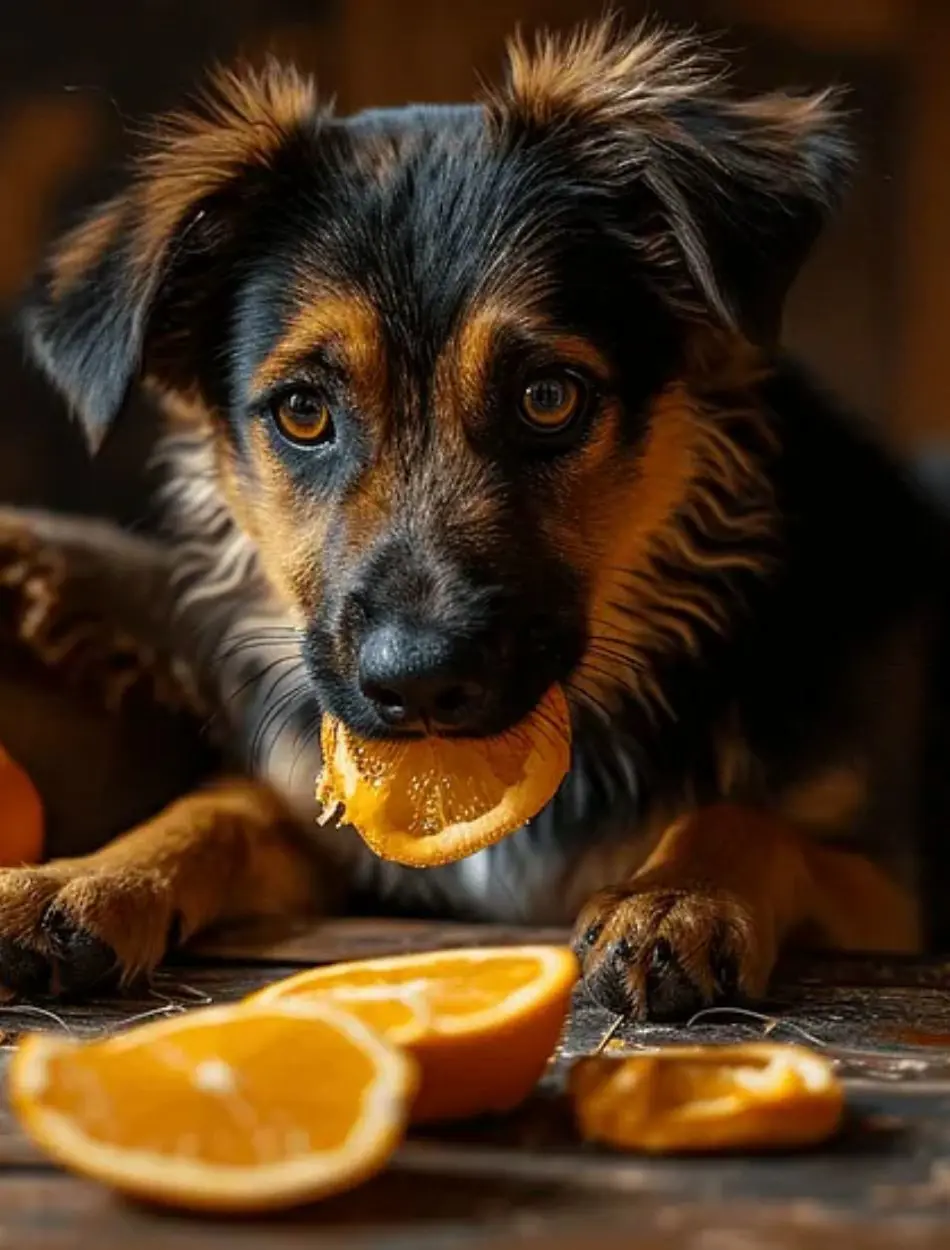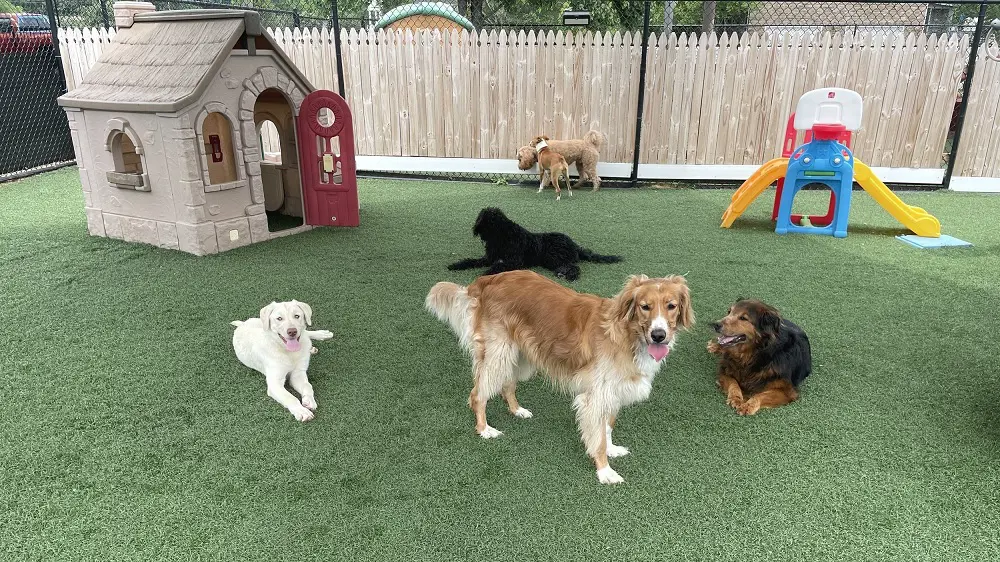Why Do Dogs Howl? 15 Facts About This Unique Sound
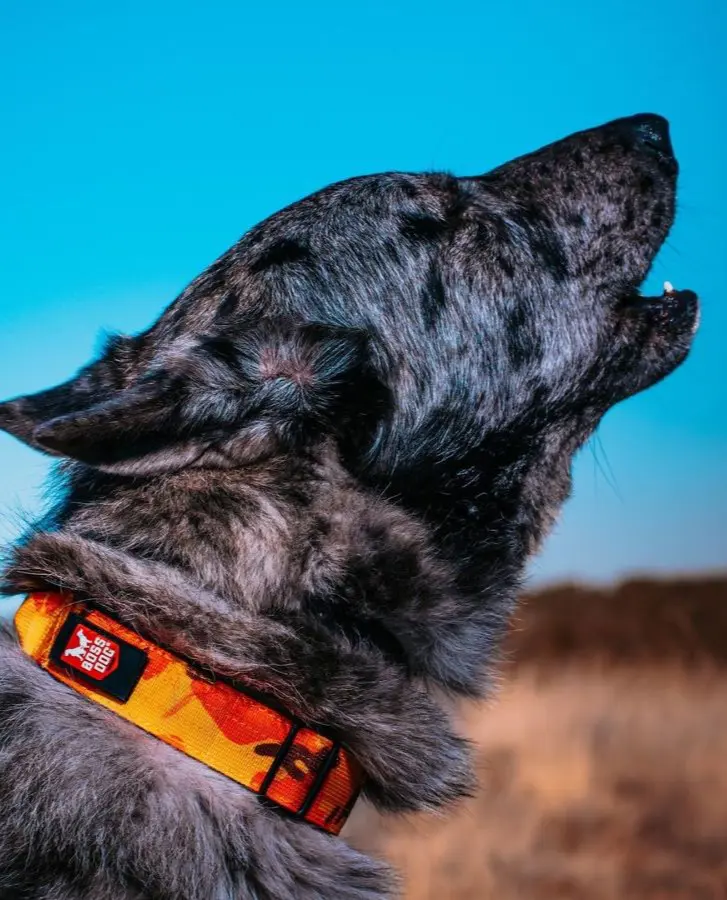
If you have pet dogs, you are probably accustomed to their howling, which is eerily reminiscent of wolves. Sometimes, you love it, but other times, it drives you crazy. It keeps you up at night, and you might have received complaints from your neighbors about your dog’s noisy nighttime habits.
You have probably tried to quieten them but to no avail. Part of why you might have failed is because you do not understand why dogs howl in the first place. They howl for various reasons, and understanding why can help you better communicate with and care for your beloved companions.
Here are 15 reasons for this unusual behavior.
1. Communication
Dogs howl when they are trying to communicate with their owners or other animals, especially over long distances. A howl might carry different messages according to pitch, duration, and context. It can range from a warning about danger to a friendly greeting to another dog.
One of the things they might be trying to communicate is their presence. Dogs howl to signal others about their presence or location.
This is their way of letting other dogs know they are welcoming of their presence. When you understand the context of your dog's howl, you might be able to decipher their message and respond appropriately.
2. Territorial Behavior
While some dogs are friendly and open to interacting with other dogs, some are wary and might howl to warn others about their menacing presence and establish their territory over long distances.
They are warning other animals to stay away, but this is a more indirect and less effective approach.
A more direct approach is scent marking. Dogs leave their excretion in specific areas, and their smell lets other dogs know about their presence and that they are in someone else’s territory.
The smell of their waste lingers for days while a howl dissipates. Therefore, howling is less effective and a more indirect approach to territorial marking.
3. Seek Attention
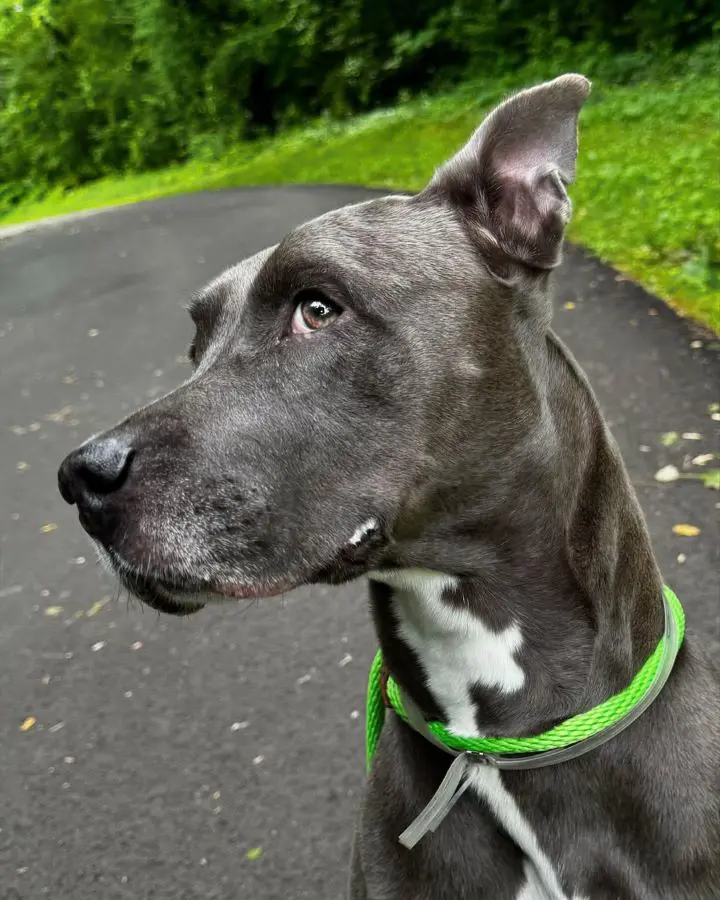
Dogs also howl to get attention, especially when they feel ignored. Howling always elicits a response from other animals, and owners and dogs may have learned that this is the best way to get attention when they want it.
They may howl non-stop until they can get the attention they seek. This can be annoying to ignore, so one way or another, you give in to their howl. Dogs are clever, and they are aware of this.
However, you should not entertain this as attention-seeking howl is usually considered a behavioral problem that needs to be rectified.
4. Separation Anxiety
You should not raise a dog if you are going to leave it on its own for an extended period because it could lead to anxiety and depression. Dogs are social creatures by nature, and because they descended from wolves, who are pack animals, they need companionship.
Therefore, dogs howl when they have separation anxiety, especially when they are always left alone. They think they are being abandoned and howl to let their owners know their distress and connect with other dogs. This is the same reason why puppies howl. Puppies need more supervision and companionship than older dogs.
5. Boredom
Apart from separation anxiety, dogs also howl out of boredom when left alone for too long. Dog breeds like German shepherds, border collies, or poodles hate being lonely and howl out of fear of abandonment.
However, independent breeds like beagles, golden retrievers, and Shiba Inus can be left alone. These independent dogs, or ones trained to stay alone, howl out of boredom.
Dogs are naturally active creatures and need physical and mental stimulation. Without it, they can become bored and frustrated, leading to howling. It is their way of releasing energy and expressing their discontent.
6. Respond To Sounds

Unlike humans, dogs have a keen sense of hearing. They can hear sounds and pick up frequencies humans cannot, and loud or high-frequency sounds, like ambulance sirens, dolphin wails, or certain musical instruments, trigger them.
These noises might sound normal to humans, but they can be deafening to dogs. Therefore, they howl to express their discomfort.
Sometimes, they might howl when they hear other dogs howl. This is known as contagious howling and is a natural response pattern, especially among dogs in urban areas.
7. Pain or Distress
Dogs cry out in pain just like humans. When dogs are injured or in pain, they vocalize it by howling. If your dog is usually quiet and suddenly starts howling continuously out of nowhere, they might be telling you they are sick or injured.
But before rushing them to the vet, look for the cause of their distress. They could be caused by usual suspects like a noise or someone leaving the house. If you cannot find anything, you might need to schedule a visit to the vet to ensure they are not in pain or physical discomfort.
8. Express Excitement
Dogs are excited when they reunite with their loved ones, and they express this by howling. They howl when they hear their owner enter the driveway or walk up to the front door. Howling is their way of letting their owner know that they missed them.
They also howl out of excitement when they have found something they want. Hunting dogs, especially, howl when they catch a prey they were tracking from their scents. Some dogs howl when they have accomplished something. They want to show off and receive praise from their owners, so they howl to get their attention.
9. Hunting Instincts
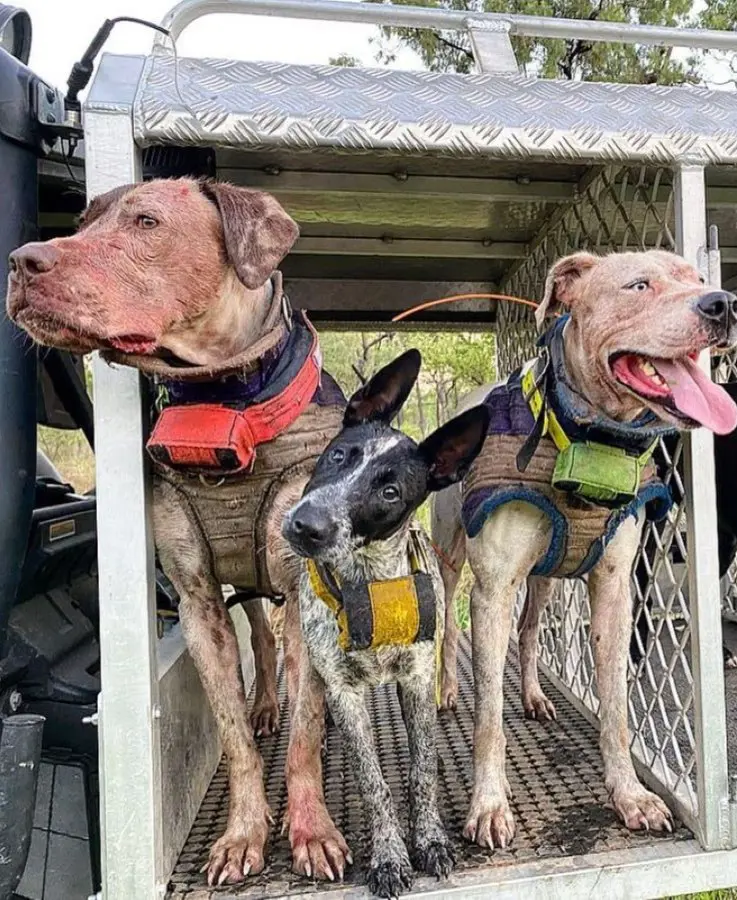
All dogs have hunting instincts because of their lineage. They might look small and harmless and seem afraid most of the time but their prey drive is in their blood.
That is why they still have the habit of chasing down, stalking, and hunting prey. Prey could mean smaller woodland animals, other pets like a cat, or even a passer-by when you are out on a walk together.
Hunting dogs like labrador retrievers, pointers, spaniels, hounds, and beagles will howl to alert other dogs to their location or to signal that they have found prey
10. Social Bonding
Have you noticed how your dog howls with other dogs or starts howling when you howl?
Dogs do this to strengthen their social bonds with other dogs in their households, parks, and humans. Howling with others is a fun group activity for them. It is an instinctive method for dogs to bond and form connections. When they howl together, it fosters a sense of unity and belonging, reinforcing their pack mentality.
This form of social bonding may usually happen at night, not because of their ancestral genes or the moon but because there are fewer external stimuli at night.
11. Mating Call
Although howling is not the primary form of communication for mating in dogs, it is still partly the reason why they howl.
Dogs primarily rely on scent and sniffing to look for potential mates, but some believe they howl during mating season to get the attention of potential mates. Howling may also be a way to mark territory when competition is higher.
Additionally, dogs howl during the breeding season because of heightened emotions. They are excited during this season because of the hormonal surge, and howling is an outlet for these emotions.
12. Signal Death
Although there is no scientific evidence, there is a belief that dogs howl to signal the impending death of others and their own as well. This belief came about from different folklore. The Irish lores claim dogs lead the dead to the heavens, and that is why they howl at the night sky.
In Central American folklore, it was believed that dogs guided the dead through the eight layers of the underworld. Apart from folklore, there are many stories all over online and offline media that dogs can somehow sense death and might howl to let their owners know.
This is difficult to prove, but experts believe dogs can sense changes in human movements and vocal tone before humans, which humans see as dogs possessing a supernatural ability to sense death.
13. Cognitive Dysfunction
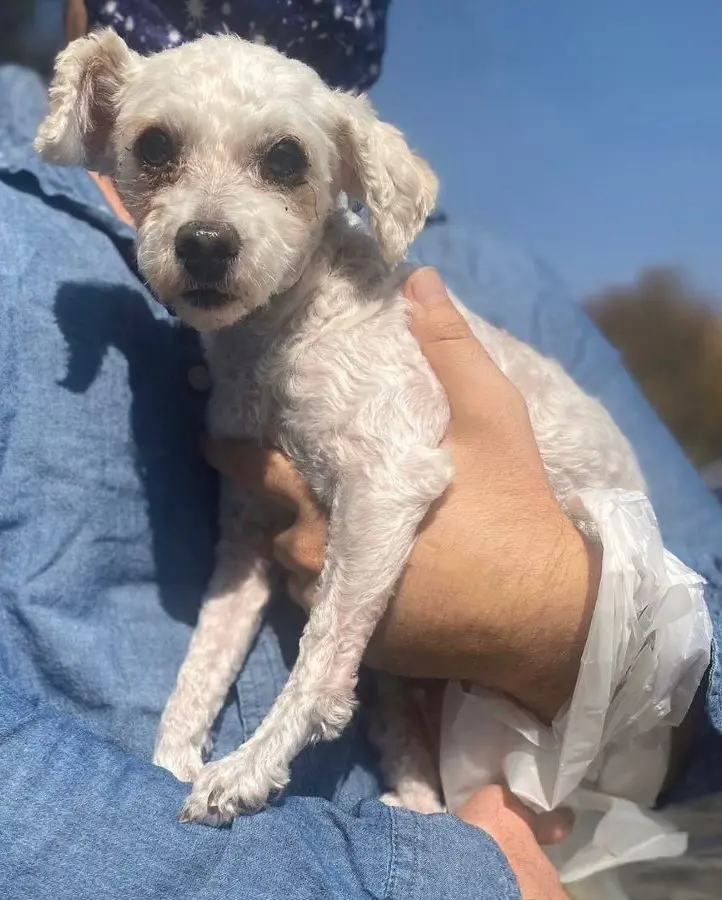
Like humans, dogs experience cognitive dysfunction as they get old.
This is known as canine cognitive dysfunction (CCD) or dementia in dogs. CCD affects a dog's brain function and impairs their communication skills. They may have difficulty recognizing people and sleeping, lose interest in playing and having fun, and pee in the wrong places.
All of this can be overwhelming, and as a result, they might howl more than usual to vocalize their distress.
They may also have problems with communication, and this causes them to howl instead. However, before you blame excessive howling on CCD, you might need to understand the context because howling is, after all, normal for dogs.
14. Genetic Predisposition
Many people believe that dogs howl because they inherited it from their ancestors. Dogs descended from wolves, and wolves howled as a form of communication.
Wolves lived in the wild and traveled in a pack for safety. They howled to warn other wild animals to stay away from their territory. They also howled to inform lost pack members of their current location. This method helps them reunite.
Dogs may not howl to reunite with lost pack members like their ancestors, but as a means of communication, which is in their blood. Howling is innate to them. As part of human families, they howl to let their owners know their intentions.
15. Learned Behavior
Howling is also a form of learned behavior in dogs. This is especially prevalent in dogs with owners who respond to their howling.
Some owners find their dog’s howls interesting, and to encourage them to do it more often, they might reward them with a treat after they howl.
After being continuously rewarded for their howling, the dogs will realize howling helps elicit a specific response they want from their owner. This kind of howling is learned and comes from experience.
How to Stop a Dog From Howling?
From the reasons mentioned above, we know that dogs howl because they have something they want to say. It is not punishable, and owners should try to understand their intentions.
However, understanding their howls should only be done when the dog is an occasional howler. Some dogs might howl excessively, which might be a sign of disruptive behavior. If your dog is one of them and you want to stop them from howling, below are some actions you can take.
Reward Your Dog's Silence
Your dog’s behavior can be conditioned with a reward and punishment system. If you have already tried punishing your dog but to no avail, try rewards. Sometimes, rewards are equally, if not more effective, in promoting good behavior.
You can give your dogs treats when they are quiet, which will help them understand that howling will not be rewarded. Keep a small stash of treats ready to reward your dog for being quiet.
Avoid giving them treats until they have been silent for about 5 seconds. If your dog begins howling while waiting for a treat, ignore them until they stop.
Ignore Their Howls
If your dog has a habit of howling for attention and getting their way, you need to make your dog understand that that will not be entertained in your home.
You do not have to punish them for howling. You can ignore their howls because shouting at them means they have managed to elicit a response from you. When they start howling, walk away and go about doing your things. They will stop after they are bored and tired.
Be Patient
Consistency in your reaction towards your dog howling is key. Sometimes, the howling might annoy you so much that you might revert to your old ways of giving them attention.
Changing their behavior is not happening overnight, so you need to be patient and stick with your chosen method for addressing the howling.
Hire a Professional
If none of these methods work or you do not have the time to deal with it, you can always enlist the help of a skilled dog trainer.
These dog trainers will help control your dog's howling and modify their response to certain situations and stimuli. They will be able to set them up for success.
Top Lists



